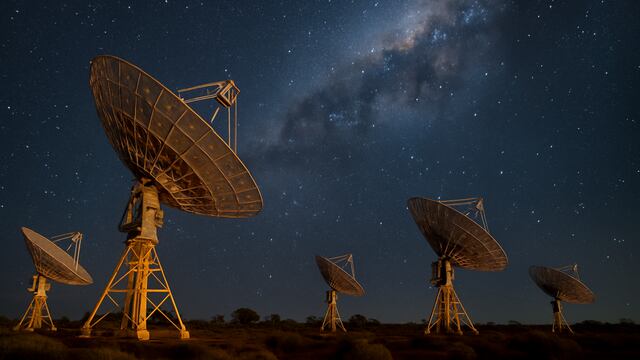A routine check for deep space anomalies turned into a rare find much closer to home.

Astronomers hunt for strange signals and discover something unexpected in Earth’s orbit

Astronomers using Australia’s ASKAP radio telescope were scanning the skies for mysterious cosmic signals – fast radio bursts, known in the trade as FRBs – when they picked up something odd. It wasn’t deep space calling. The signal, detected by the powerful antennas of the Australian Square Kilometre Array Pathfinder, was steady, artificial, and strangely Earth-like.
What did astronomers hear from deep space?
Initially dismissed as interference, the signal persisted. And when scientists from the Commonwealth Scientific and Industrial Research Organisation (CSIRO) followed up, they tracked the source – not to a distant galaxy, but to a previously unknown satellite orbiting Earth.
“We weren’t expecting to find anything in Earth’s orbit with this setup,” Dr. John O’Sullivan of CSIRO told CNN. “But the signature was clear, it was broadcasting in the same band we use to hunt for distant signals.”
The satellite, now dubbed ‘Relay 2,’ is thought to be either a long-defunct communication satellite or a covert military craft. Its existence was never registered with the UN or publicly documented.
Why is this discovery raising questions?
The find has sparked speculation about the number of unregistered satellites currently circling Earth. In theory, all active satellites must be registered for safety and accountability. Yet this detection suggests otherwise.
It’s also a reminder that as space gets more crowded, distinguishing human-made signals from genuine cosmic phenomena is getting harder. “We may be mistaking more Earth-based signals for extraterrestrial ones than we think,” said Dr. O’Sullivan.
Oh well, maybe next time...
Get your game on! Whether you’re into NFL touchdowns, NBA buzzer-beaters, world-class soccer goals, or MLB home runs, our app has it all.
Dive into live coverage, expert insights, breaking news, exclusive videos, and more – plus, stay updated on the latest in current affairs and entertainment. Download now for all-access coverage, right at your fingertips – anytime, anywhere.


Complete your personal details to comment